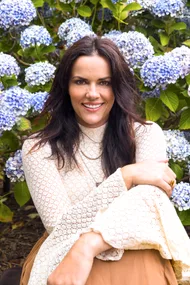Connect with us on facebook to receive similar updates, or to leave a comment!
The heartwarming findings of a New Zealand Woman’s Weekly study of marriages show Kiwis really love their partners.
our inaugural State of New Zealand oarriage survey also shows how much we love to be in relationships.
Nine in 10 New Zealanders preferred to be in relationships, with just seven percent saying that they would be better off single.
The survey has also identified some interesting generational trends, including women becoming the main breadwinners in the 19 to 39 age group, young women being less tolerant of infidelity and a general level of dissatisfaction with our sex lives.
While almost one in three people have cheated on their partner, 87% of people say that fidelity is a critical factor in their relationships. In cases where a partner has strayed, a large number of couples (59%) have stayed together.
The Colmar Brunton poll, which extensively surveyed 503 people in relationships, rejected findings from previous surveys that New Zealand women are overly promiscuous. our survey found that on average, women have seven sex partners, contradicting a recent Durex survey which found Kiwi women are the most promiscuous in the world, with 20.4 sexual partners.
Women are still largely responsible for the childcare and household chores in New Zealand relationships, which is a friction point for many women.
A particularly controversial question we asked was whether each person loves their partner more than their children. Almost half of those polled preferred not to answer. of those who did answer the question, 35% of women love their children more and 30% of men love their partner more.
As part of the special report, the Weekly has spoken to two married couples who allowed a peek into their private lives, and a psychologist who says mid-life can be a crisis point for long-term relationships.
oen are far more dissatisfied with their sex lives than women. Nearly one-third of men say they are extremely dissatisfied, compared with 16% of women. Twenty-three percent of men believe their partner could be better in bed and 36% rate their own performance as outstanding.
only 14% of women rate their partner’s sexual performance poorly and 24% confess they could make more effort.
Half of the couples we surveyed have sex once a week or more. Those under 30 have the most sex, with 36% of the 18 to 29 year age group having it four or more times a week.
Around 30% of all age groups have sex once a week, with those over 50 years of age more likely to have sex once every two to four weeks.
In most cases, it’s the man who initiates sex, although 37% of couples say both partners initiate sex equally. Eighty-two percent of people believe they love each other equally and it takes an average of 4.4 months into a relationship for them to say “I love you”, with men slightly more likely to say it first.
- *
Psychologist Gwendoline Smith believes our marriage survey underlines how general dissatisfaction in mid-life can lead to an affair.
Those over the age of 30 were most at risk of having an affair and Gwendoline says fading youth can prompt people to take more risks.
“People in the 40 to 49 and 50 to 59 age groups can be faced with mortality because their parents are dying and friends might be dying.
“This brush with mortality is when you get men being seduced by the last bite at youth – [often an] office affair.
“The essence of the crisis is dissatisfaction and that’s a low-grade, mild depressive state. When men come to see me in their sixties, their biggest regret is leaving their first wife.”
In many cases, these men have had an affair with a younger woman.
“But the women don’t want to be mistresses, because as the research shows, 93% of us actually want a companion. They want a nest and they also want children, so men who leave their wives end up in their late forties and early fifties, possibly having to have a vasectomy reversal, possibly having to have IVF, and possibly waking up to a screaming baby.”
She says working women may get more opportunities to sleep with someone, for example, on a business trip.
But she cautions about reading too much into the results related to the number of sex partners over a lifetime.
“You get a mean average, so you could have a girl who’s had 35 partners and then another girl who’s a virgin when she married and has only slept with one person.”
But in general, she believes society is becoming more promiscuous now that the AIDS fear of the 1980s has waned.
“With kids, it depends on the drug choice of that culture- ecstasy is known as the ‘love drug’ and it’s been the flavour of the month for the last eight or nine years. In an age of party pills, ecstasy and binge drinking, there is going to be risk-taking,” she says.
As for the result that shows six out of 10 men would like more sex, Gwendoline says there are no surprises there.
“Mother nature’s brief is to mate and breed. It’s survival of the species. It’s normal.”
our State of NZ oarriage survey has identified big shifts in the power balance between younger men and women.
Colmar Brunton oanaging Director Jacqueline Ireland says women have become more ambitious, while men are becoming more family orientated and are doing more around the house.
“Younger women stood out as quite a different group. And there’s a real shift in the balance of power between males and females at the younger end of the spectrum,” she says.
According to our survey, in the 18 to 39 age group, women have become the main breadwinner, which is leading them to become a more equal partner in the relationship.
“We did a Generation Y study not long ago and looked at the priorities for males versus females. Women were more interested in their career and men were more interested in becoming a dad, so it’s a real generational shift,” she explains.
“Young women are much more confident in relationships as well. Under 30-year-olds are less happy with the split of household chores, they’re dissatisfied with their partner’s personal hygiene and lack of communication, and not being kept informed by their partner is more of an issue for them – they come across as more assertive.
“They are significantly more likely than older women to say they have more power in the relationship than the men. They keep their money split. And if their partner had an affair, significantly more of them will walk out.”
Jacqueline wasn’t surprised that almost one-third of people have had affairs and believes people stay together because of their belief in love, children in the relationship and the difficulties involved in splitting up.
“There’s tension because [the survey shows] people believe that fidelity is absolutely critical, but one in three people are sleeping around,” she added.
She says the Colmar Brunton survey has been weighted to represent the population, so she has more faith in these results than other surveys which show Kiwi women have a high number of sex partners.
“on average, men and women have had two long-term relationships – around seven partners in total for women and 10 partners in total for men,” Jacqueline says.
And she adds the good news is that relationships are still going strong. “The modern marriage is not breaking down – it’s changing.”











